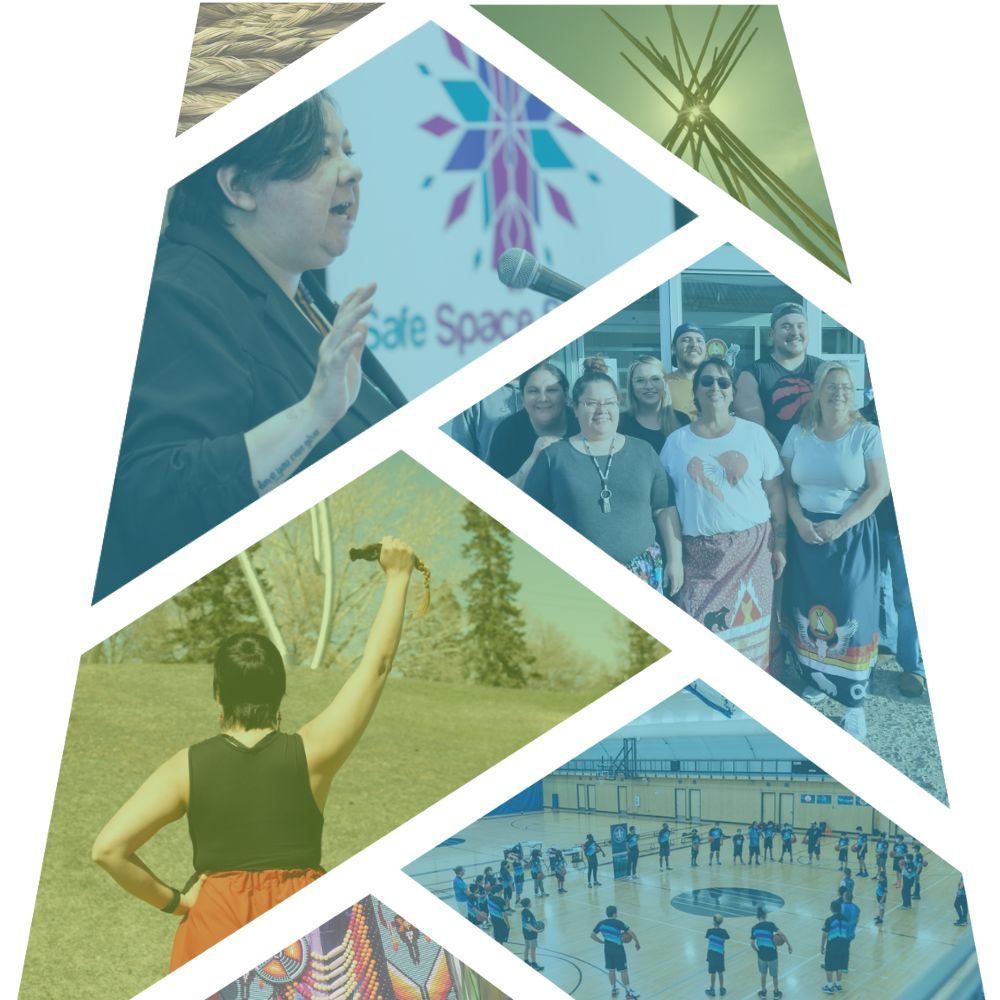At the Aboriginal Friendship Centres of Saskatchewan (AFCS), our commitment to community care is grounded in a simple but powerful belief: Indigenous rights are human rights.
For decades, the Friendship Centre Movement in Canada from coast-to-coast-to-coast has been a strong and steady voice in advocating for the rights, dignity, and well-being of Indigenous peoples. In Saskatchewan, this advocacy takes shape not only in policy and partnerships, but through grassroots programming that meets people where they’re at.
Human Rights in Action
The movement to advance human rights is deeply woven into the history and ongoing work of Saskatchewan’s Friendship Centres. Over the years, our Centres have developed and delivered a wide range of supports rooted in dignity, equity, and Indigenous self-determination. These efforts have included:
- All Saskatchewan Friendship Centres are helping families and individuals meet their basic needs through food security programs.
- In times of urgent need, Friendship Centres in Saskatoon, La Ronge and North Battleford have stepped up to provide emergency shelters across Saskatchewan, offering safety, resources, and care when there were gaps in available services.
- 25 Indigenous Women’s Initiatives: These initiatives empower and strengthen Indigenous women’s leadership and wellness. A key part of this is the Honouring Her Spark initiative, developed by AFCS. Over the past five years, it has grown into a vital program, creating spaces for connection, mentorship, and cultural strength for Indigenous women across Saskatchewan.
Each of these efforts is part of a larger movement to uphold the rights of Indigenous people. Ensuring access to safe spaces, nutritious food, culturally grounded supports, and a future built on equity and inclusion.
Health, Healing, and Community Connection
Health goes beyond the clinic, it’s rooted in connection, belonging, and the opportunity to thrive. That’s why AFCS and our Member Friendship Centres takes a broad, community-driven approach to health and wellness.
The Living Skies Indigenous Basketball League (LSIBL) is a groundbreaking initiative that provides cost-free basketball opportunities for Indigenous youth aged 11–17 across Saskatchewan.
Since its inception in 2021, the league has empowered over 2,900+ athletes to develop their skills both on and off the court. LSIBL fosters a sense of community and belonging among youth. The league includes workshops on topics such as resiliency, mental health, suicide prevention, nutrition, and life skills, aiming to build confidence and self-esteem among participants. In the spirit of reconciliation, LSIBL welcomes athletes and coaches from all backgrounds, promoting unity and understanding through sport.
To learn more about the Living Skies Indigenous Basketball League check them out here:
- Website: Living Skies Indigenous Basketball League
- Instagram: Living Skies Indigenous Basketball League
Friendship Centres Responding to Urgent Health Needs with Compassion and Care
Friendship Centres across Saskatchewan are committed to addressing pressing health needs with empathy, understanding, and culturally relevant support. Some of the key ways we’re making a difference include:
- Nēwo-Yōtina Friendship Centre:
- Since opening its safe consumption site four years ago, the site has seen 6,690+ visits and 6,549 consumptions.
- It has supported individuals in a harm-reduction, non-judgmental space, with 84 non-fatal overdoses reported and 0 fatalities.
- Notably, 5,123 visitors self-identified as Indigenous, and 5,055 self-identified as male.
- Supportive Housing Units:
- Across Saskatchewan in Ile-a-la-Crosse, North Battleford, Meadow Lake and Regina, five supportive housing units provide essential stability and wraparound support for individuals and families facing housing insecurity, mental health, or substance use challenges, helping them rebuild their lives with dignity and care.
Ongoing Commitment to Community Wellness and Human Rights
Through these initiatives, Saskatchewan’s Friendship Centres continue to play a critical role in advocating for and advancing human rights, health, and well-being for Indigenous communities. By offering vital services such as safe consumption sites, supportive housing, and programs that foster youth development, we are not just addressing immediate needs — we are building stronger, more resilient communities for the future.
As we look ahead, our commitment to supporting the health and rights of Indigenous peoples remains unwavering. Together, we are creating lasting change and empowering individuals to thrive in every aspect of their lives.

- Battleford Indian & Metis Friendship Centre
- Buffalo Narrows Friendship Centre
- Ile a la Crosse Friendship Centre
- Kikinahk Friendship Centre
- La Loche Friendship Centre
- Newo-Yotina Friendship Centre
- North West Friendship Centre
- Prince Albert Indian & Metis Friendship Centre
- Qu’Appelle Valley Friendship Centre
- Saskatoon Indian & Metis Friendship Centre